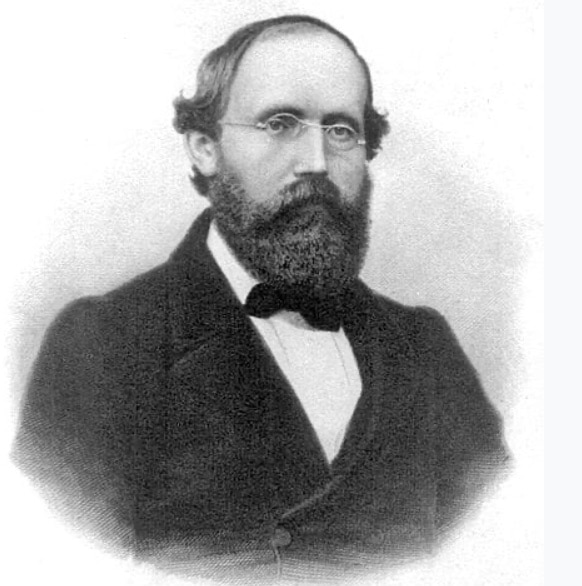
Bernhard Riemann was born on September 17, 1826 in Breselenz, a village in the Kingdom of Hanover, now part of Germany. He showed early aptitude for mathematics and entered the University of Göttingen in 1846, where he studied under the renowned mathematician Carl Friedrich Gauss and other influential mathematicians. He completed his doctoral studies in 1851 with a groundbreaking dissertation titled “On the Hypotheses Which Lie at the Foundations of Geometry.” In this dissertation, he introduced the concept of Riemannian geometry, that extended the understanding of non-Euclidean geometries and laid the groundwork for the theory of curved spaces.
In the field of real analysis, he provided a rigorous definition of the integral and and proved that functions which are Riemann integrable are representable by Fourier series. Riemann also made significant contributions to complex analysis by introducing the concept of Riemann surfaces. His work in differential geometry included the development of Riemannian metrics and the Riemann curvature tensor, which are essential concepts in the study of curved surfaces and spaces. In fact, in the next century, Einstein would use Riemannian geometry in his General Theory of Relativity to describe the effect of gravitation in “curved space.”
After receiving his Ph.D., Riemann worked as a lecturer and later as a professor at the University of Göttingen. His lectures and publications had a profound impact on the development of mathematics during his time. These surfaces are fundamental in the study of complex functions and have applications in various areas of mathematics and physics, including algebraic geometry and string theory.
One of his most famous contributions was his development of the Riemann zeta function, denoted as ζ(s). This function plays a strong role in number theory where it offers deep connections to the distribution of prime numbers. Riemann’s work on the zeta function led to the formulation of the Riemann Hypothesis, one of the most famous unsolved problems in mathematics.
Bernhard Riemann’s life was cut short when he died at the young age of 39 in Selasca, Italy, from tuberculosis. Despite his relatively short life, his contributions to mathematics left a lasting legacy, profoundly influencing subsequent advances in complex analysis, number theory, and differential geometry. His ideas and theorems continue to be studied and celebrated by mathematicians, and he is considered by many historians as one of the greatest mathematicians of all time.
